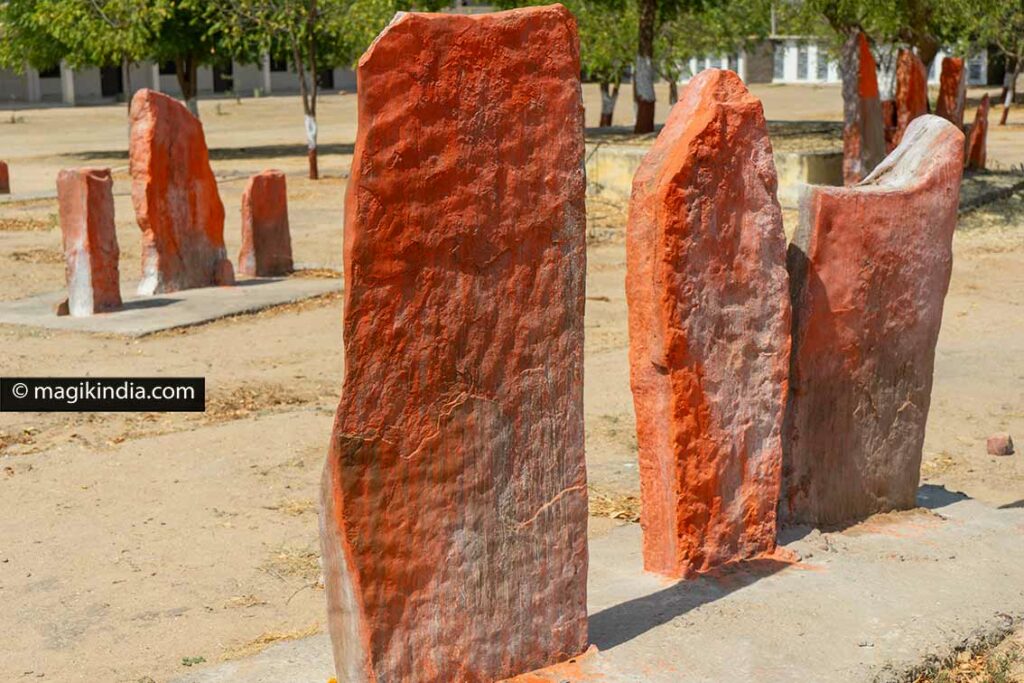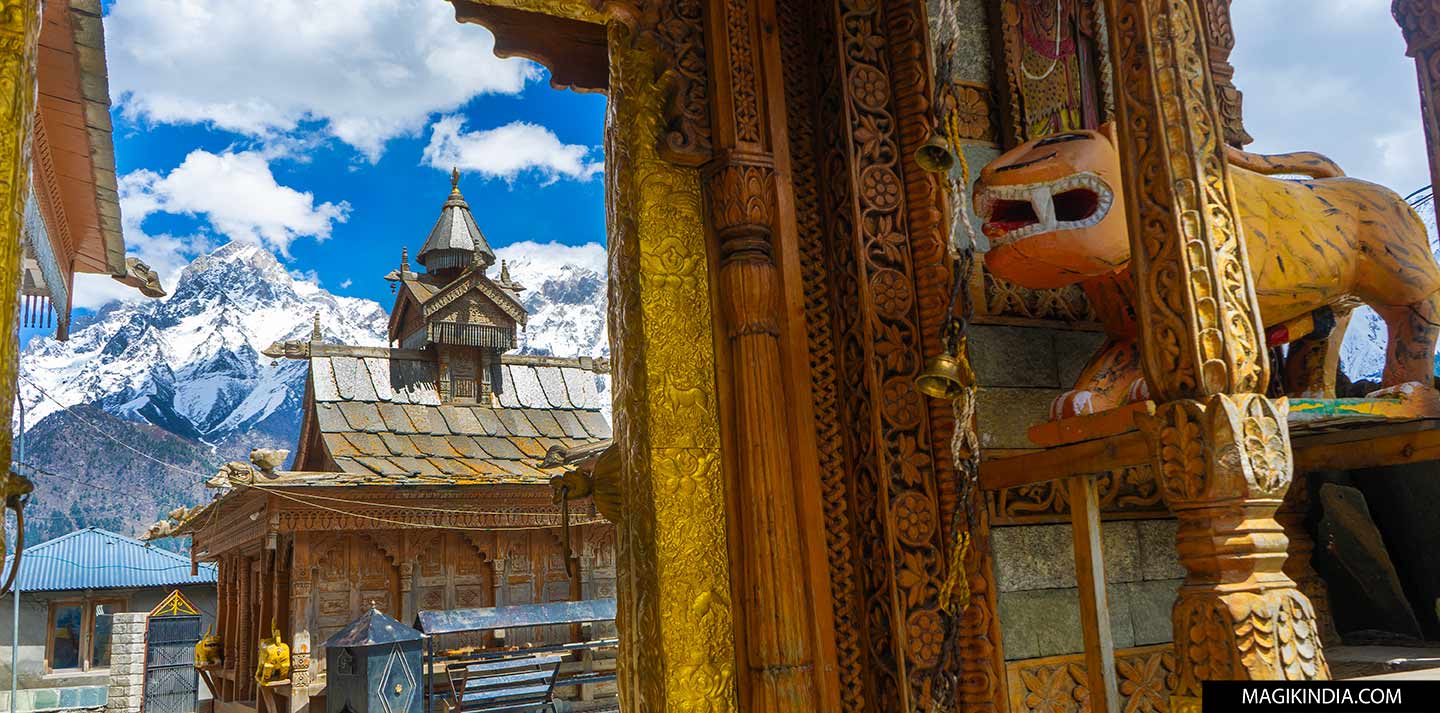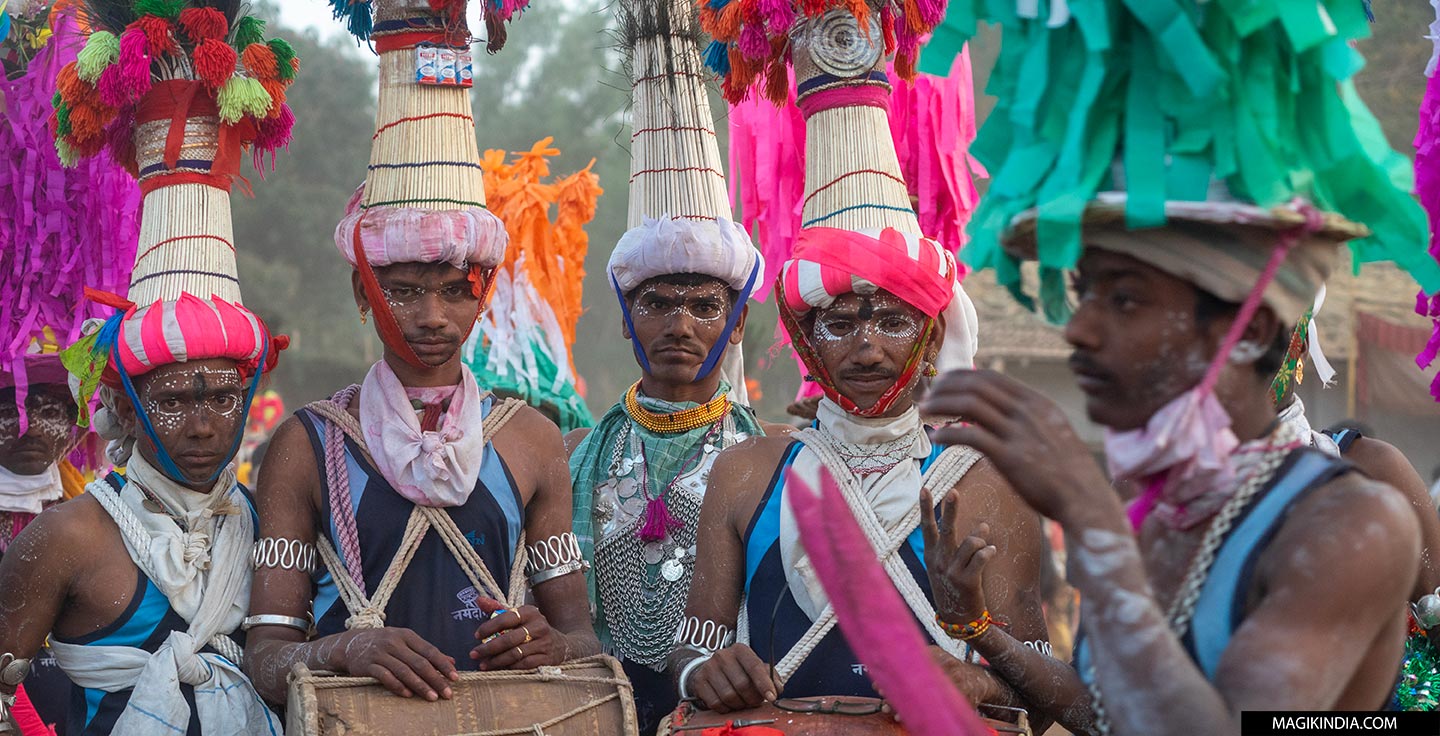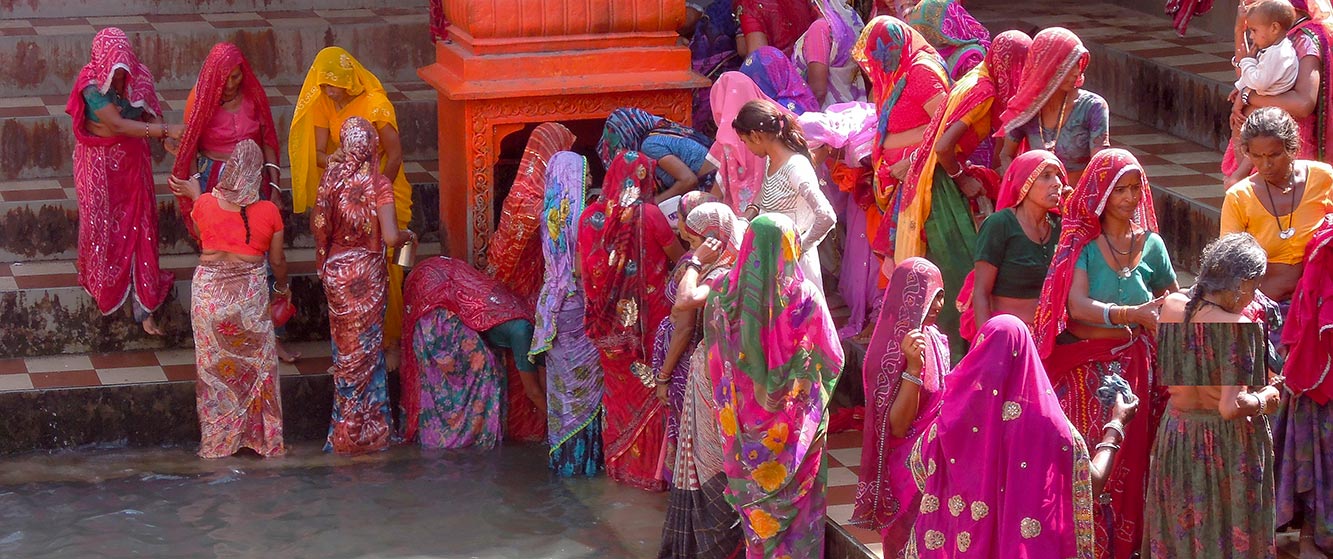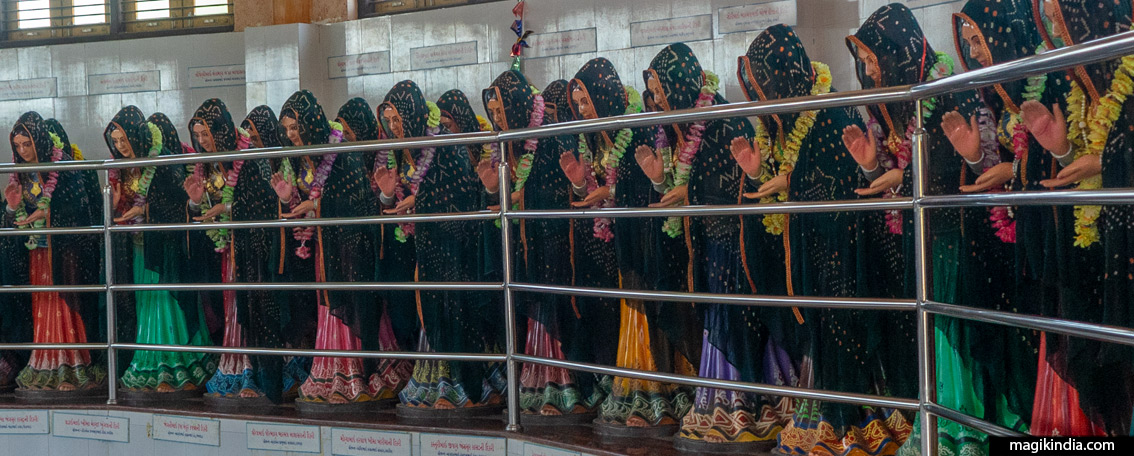
Vrajvani, the 140 Ahir women temple
Located in Rapar Taluka, east of Kutch district (Gujarat) and an hour and a half from the archaeological site of Dholavira, Vrajvani is a much revered temple, especially by the Ahir community. This shrine is absolutely unique in India in that it houses 140 life-size statues of women.
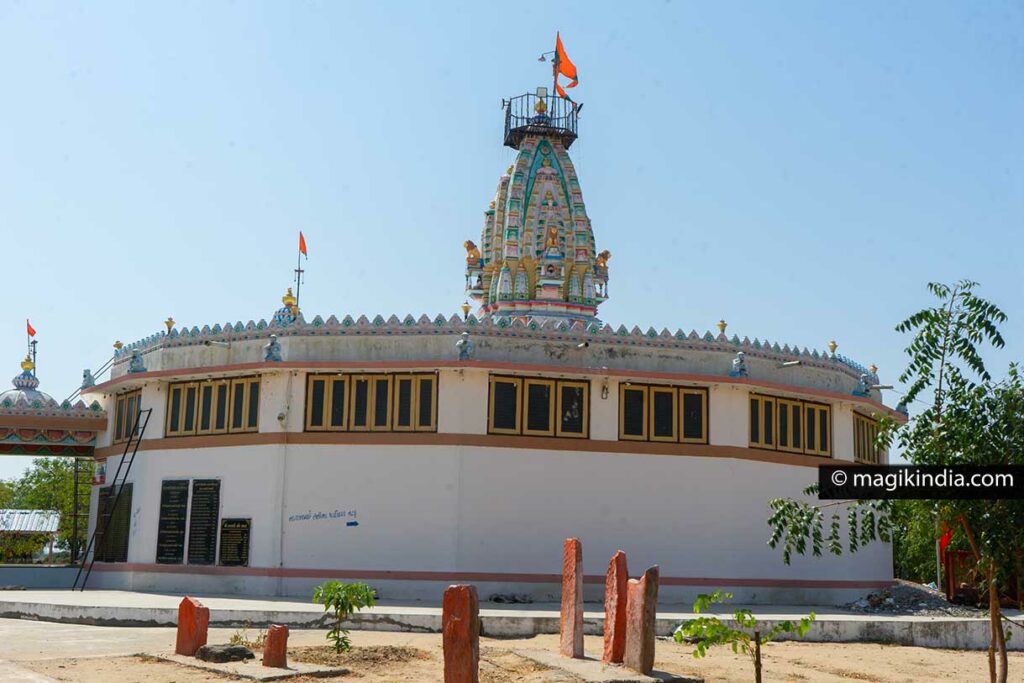
The temple is striking from afar, its polygonal structure with a Sikhara tower in its center is not a common sight. We already sense that a nice surprise awaits us.
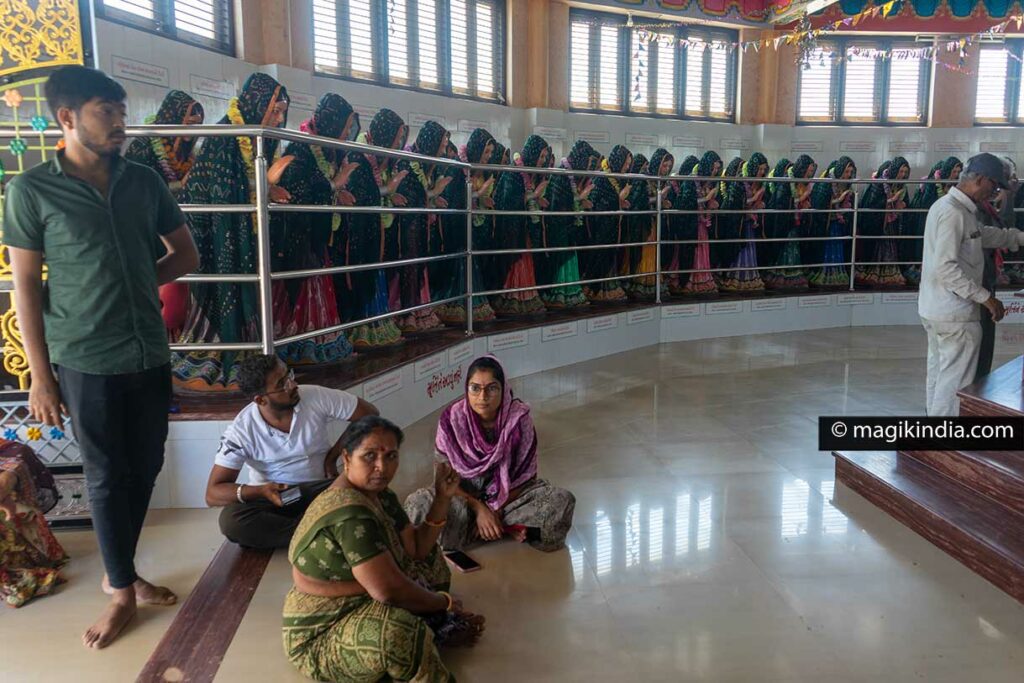
And, indeed, we are not disappointed.
The temple houses two rows of life-size statues of women in colorful traditional outfits. They stand with their heads slightly bowed and clap their hands. There are 140 lined up in a circle along the temple wall.
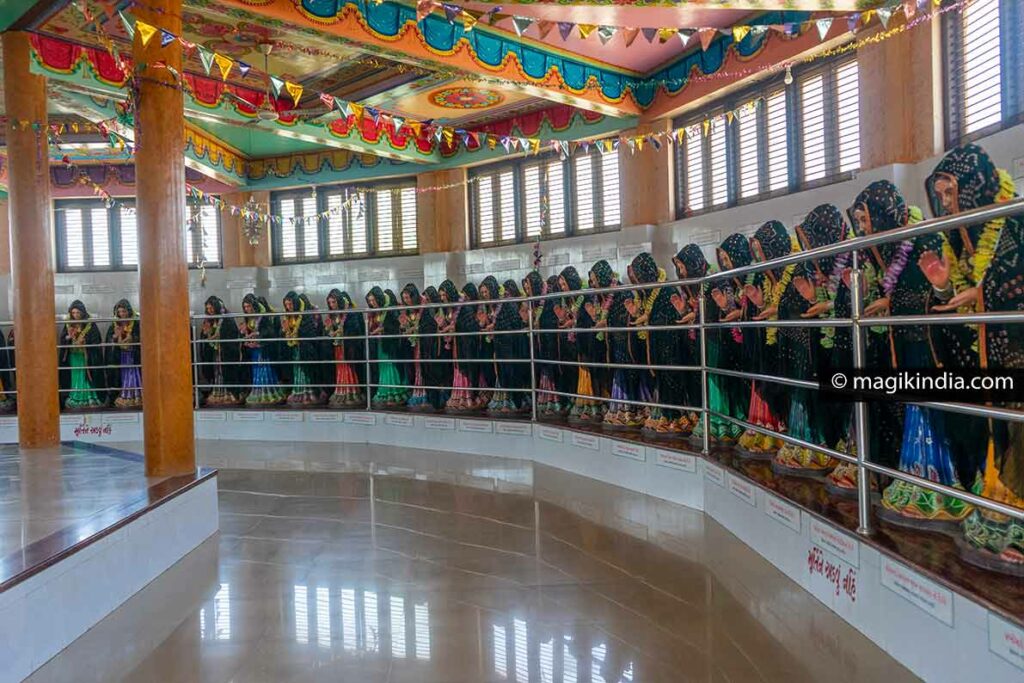
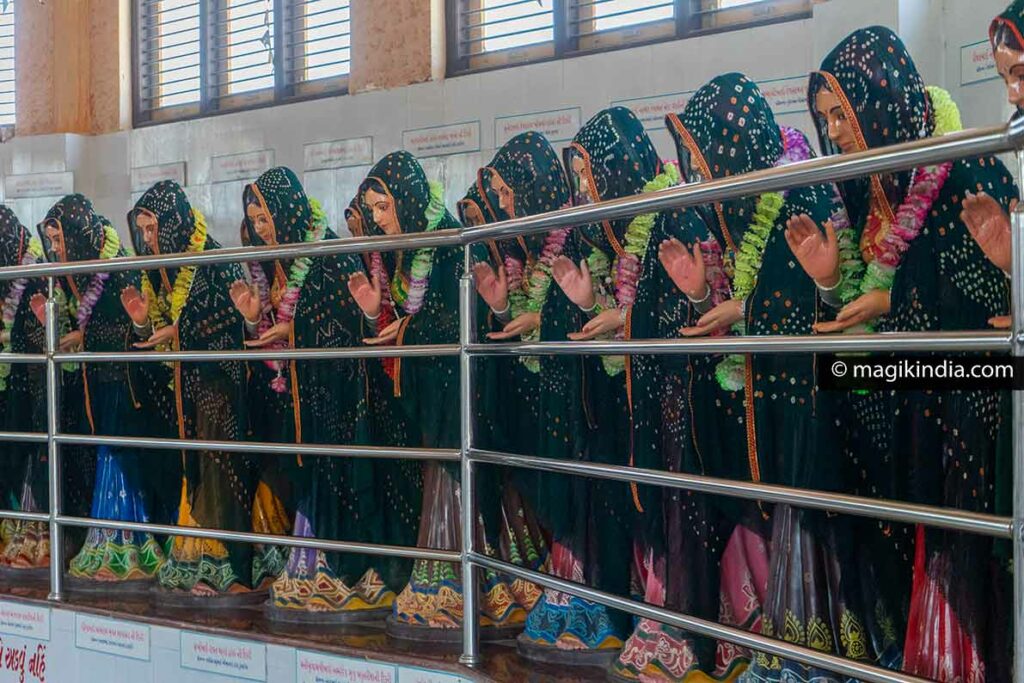
A barrier was recently added to prevent the damage of the sacred statues with unwanted selfies.
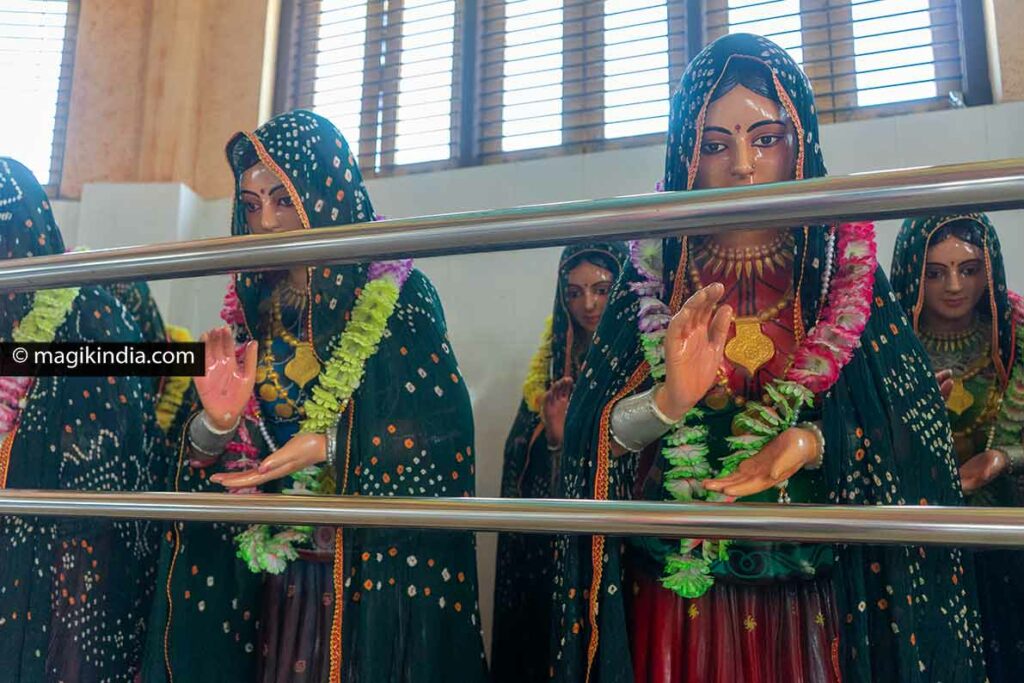
In the center of the temple sits the Sanctum Sanctorum dedicated to Krishna and Radha with two statues representing them. These 140 women therefore bow before the divine couple.
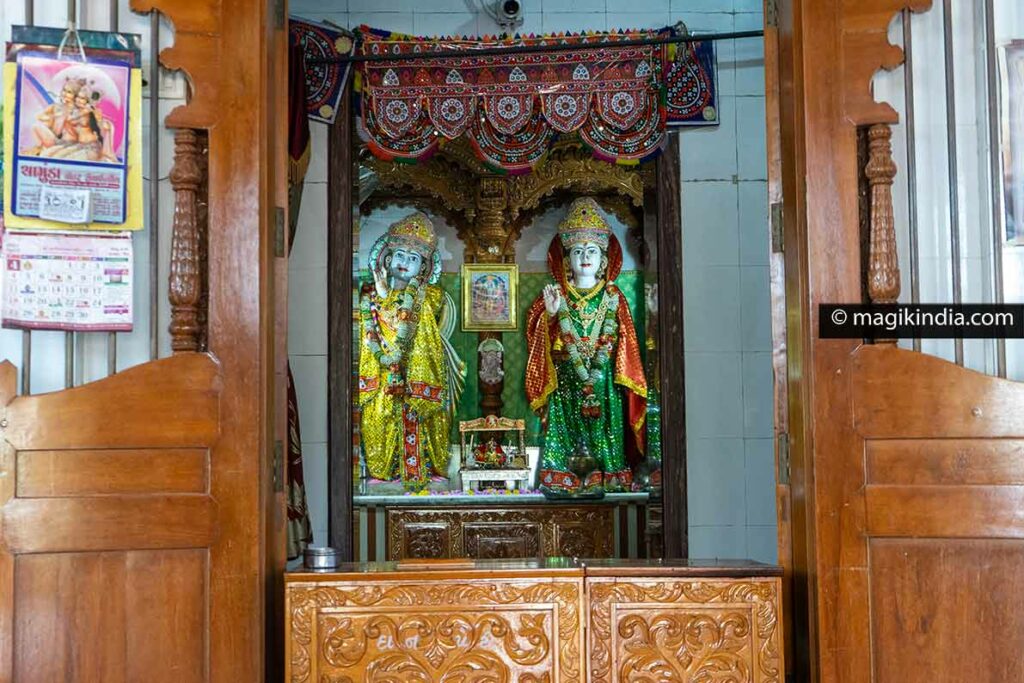
This temple actually recreates the legend of “Dholithar no Dhoro”, the drummer of Vrajvani.
It is said that a few hundred years ago, during the celebration of Janmastami, a young man started playing Dhol (Indian percussion) in a village.
One hundred and forty women from the Ahir community, irresistibly attracted by the sound of the drum, began to dance in a circle around the musician, to the rhythm of the percussion in an ecstatic state. And it continued like this without interruption for days and days.
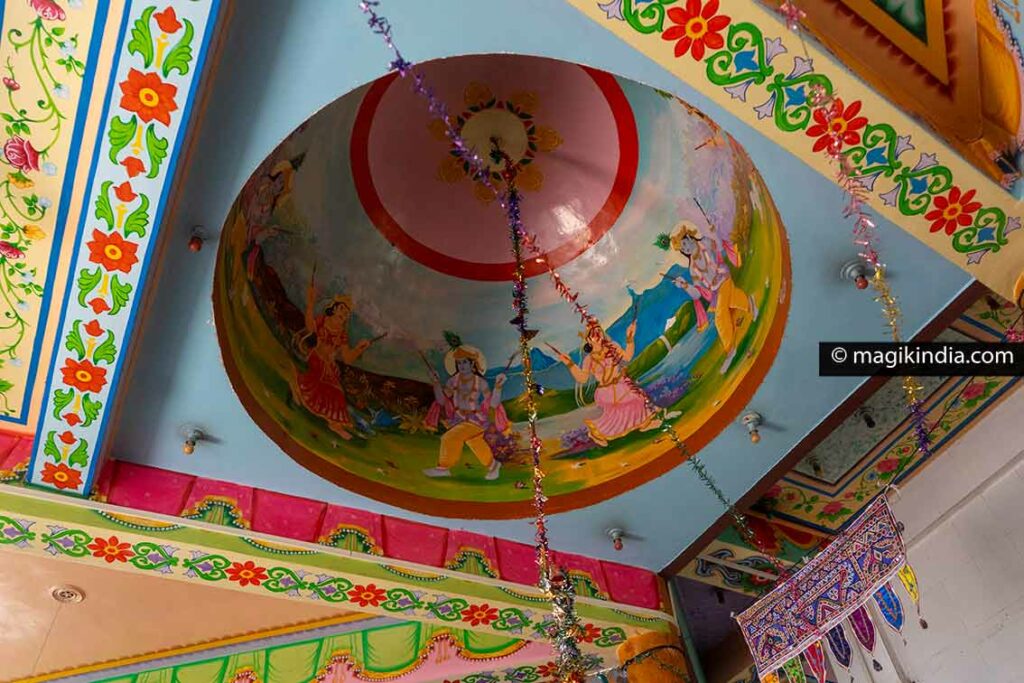
The village priest and especially the dancers’ husbands, not understanding this sudden madness, tried to stop them, but in vain. They took the radical decision to behead the musician.
Horrified by such an act, the 140 women sacrificed their lives on the musician’s pyre; the percussionist was none other than Lord Krishna himself and this dance recreated the Raas Leela of Krishna and the gopis.
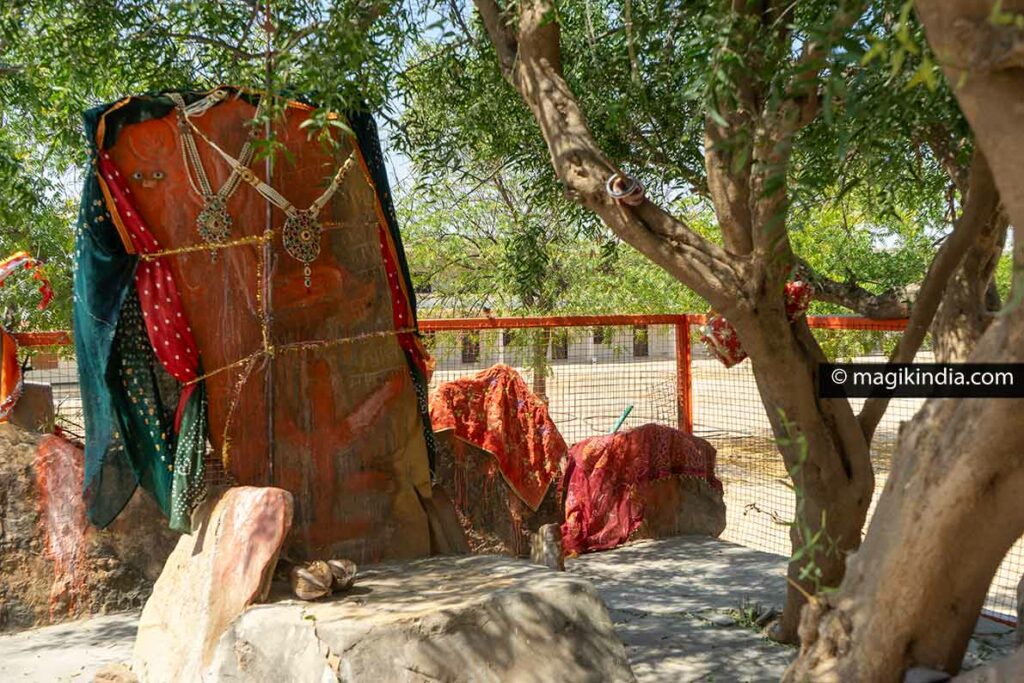
One hundred and forty stone steles placed all around the temple are supposed to represent these 140 Ahir women who, for the Hindu faithful, are the perfect example of pure devotion to the divine.
